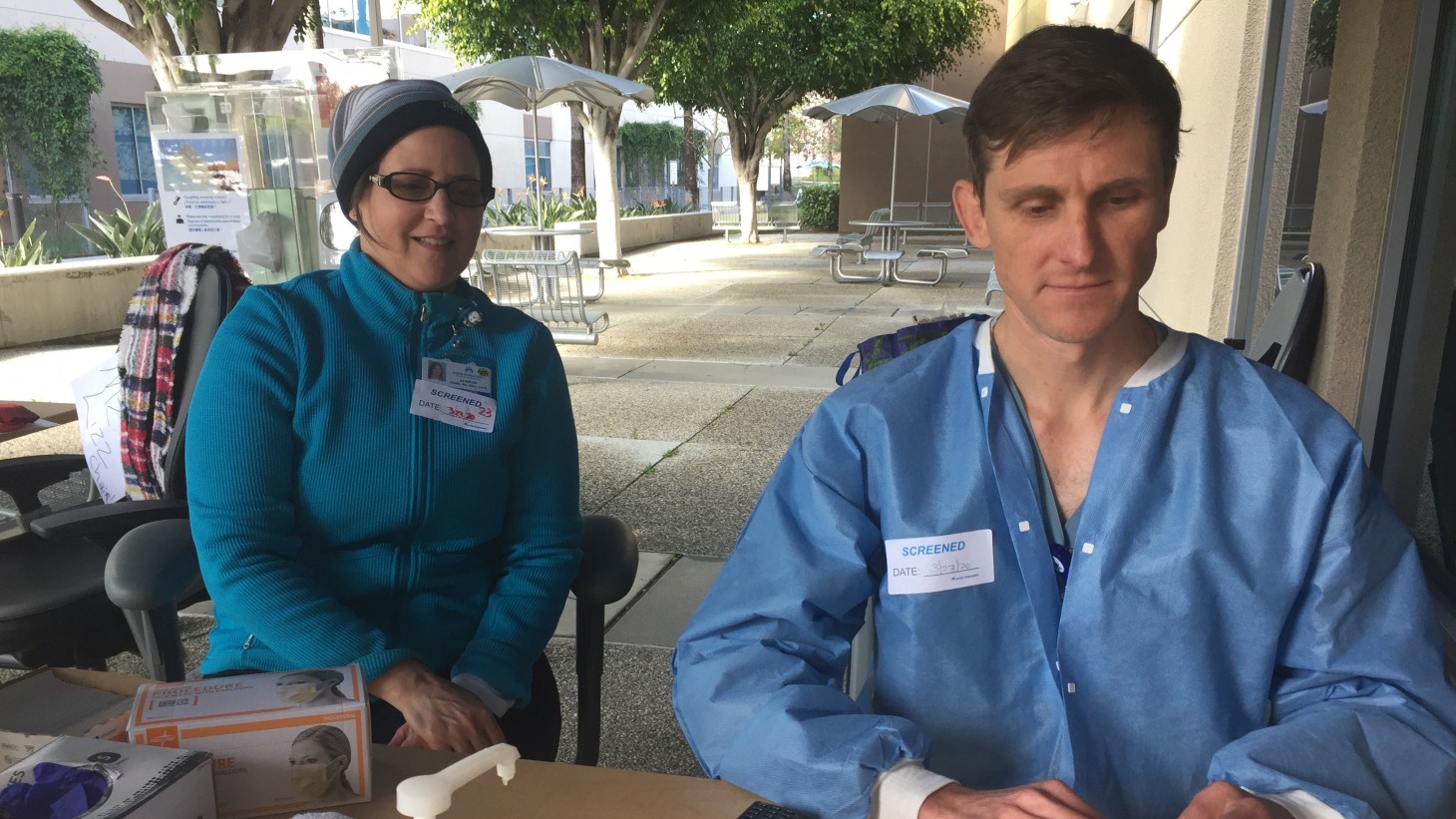
Sharon Davis, RN, and Chris Osborn, PA-C, both members of UNAC/UHCP, prepare to screen patients and employees for signs of cold- and flu-like symptoms at South Bay Medical Center.
Open communication is more important than ever
As physician assistant Larry Rick, PA-C, made his rounds of the South Bay Medical Center one recent morning, staff stood at the hospital’s main entrance and screened members, patients, and employees for signs of cold- and flu-like symptoms. Like Kaiser Permanente facilities enterprise-wide, the Southern California hospital adopted the new procedure to protect patients and staff from COVID-19, the respiratory illness caused by the novel coronavirus.
A well-established approach is also helping: Frontline workers here say years of working collaboratively with managers as part of the Labor Management Partnership has better prepared them to fight the pandemic. The Partnership has saved money, improved care, and led to better service – and now will literally be saving more lives because frontline workers, managers, and physicians are working together.
An opportunity to speak up
“Partnership is a fantastic tool,” says Rick, a member of UNAC/UHCP, who has 34 years of experience fighting infectious diseases including H1N1, HIV, and sexually transmitted diseases to prevent the spread of HIV. “Every Kaiser Permanente senior leader has been responsive to our requests and has heard us. We’re working together and everybody is leaning in” to treat more patients now, while preparing for an expected surge. In response to unit-based team members’ concerns, for example, tape was placed in 6-foot intervals on pharmacy floors to help members and patients maintain social distancing while standing in line.
“We’re able to speak up as labor and help figure out the solution,” says Alejandra Navarro, a registered nurse in Maternal Child Health and a member of UNAC/UHCP.
Working in partnership together has also built trust between management and labor. That’s been key to maintaining open lines of communication now and helping counter misconceptions spread by social media, say frontline workers.
Education and support
“They’re educating us and giving us a lot of support,” said Lizz Burnett, a licensed vocational nurse in Geriatrics and a member of SEIU-UHW. “If I can help educate someone and they can tell their family, then maybe we can stop this.”
Tynikko Snyder, a registered nurse in Family Medicine at the Gardena Medical Offices, has 2 children with asthma and her mother suffers from chronic obstructive pulmonary disease. She is worried about the impact of her work on her family. “I am afraid, but I know that I need to step up to the plate and do what needs to be done,” says Snyder, who is a member of UNAC/UHCP. Rick says that can-do spirit is needed to combat the spread of the disease: “If we all do our jobs, we will save lives.”
